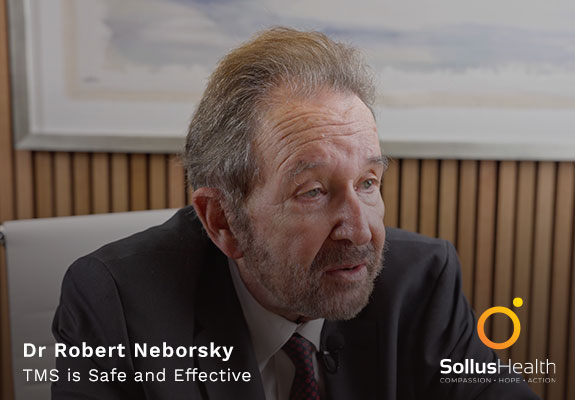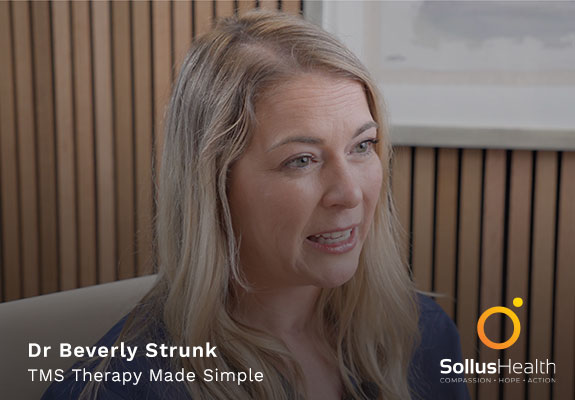ADVANCED TMS THERAPY
Unlock Lasting Relief from Depression
TMS therapy in San Diego offers a non-invasive, drug-free approach to treating depression and other mental health conditions.
-
Covered by Insurance
-
FDA Approved
ADVANCED TMS THERAPY
Unlock Lasting Relief from Depression
TMS therapy offers a non-invasive, drug-free approach to treating depression and other mental health conditions.
-
Covered by Insurance
-
FDA Approved


EMPOWERING WELLNESS, TRANSFORMING LIVES
Transcranial Magnetic Stimulation in San Diego Carlsbad Oceanside Encinitas San Marcos Vista


MENTAL HEALTH INNOVATION
What is TMS?
TMS is a non-invasive treatment where magnetic pulses are delivered to stimulate the root cause of depression and many other conditions. TMS has been FDA-approved since 2008 and is covered by insurance.
Conditions We Treat
-
Depression
-
OCD
-
PTSD
-
Anxiety
-
Chronic Pain
-
Sleep Disorders
-
Smoking
-
Bipolar

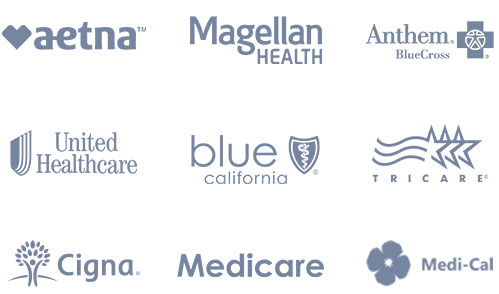

PERSONALIZED SOLLUS TMS THERAPY
Why TMS Therapy in San Diego?
Choose TMS therapy in San Diego for its non-invasive approach, minimal side effects, high effectiveness, and ability to target specific brain areas.
-
Non-Invasive Treatment
-
Targeted Treatment
-
Few Side Effects
-
Safe & FDA Approved
-
High Success Rate
-
Long Lasting Results

A CLEAR WINNER IN DEPRESSION TREATMENT
TMS versus Medication
TMS is an effective alternative to medication, especially for those who don't respond well to antidepressants. TMS directly targets brain areas involved in mood regulation, with fewer side effects than medications.
Respond to TMS
Respond to Meds
Response rate for every 10 patients
Respond to TMS
Respond to Meds
Response rate for every 10 patients
A CLEAR WINNER IN DEPRESSION TREATMENT
TMS Therapy versus Medication
TMS Therapy is an effective alternative to medication, especially for those who don't respond well to antidepressants. TMS directly targets brain areas involved in mood regulation, with fewer side effects than medications.
Neuroplasticity and TMS: empowering the brain to adapt, heal, and thrive
TMS can promote neuroplasticity by enhancing synaptic strength and stimulating the growth of new neural connections, helping the brain adapt to changes or recover from trauma.
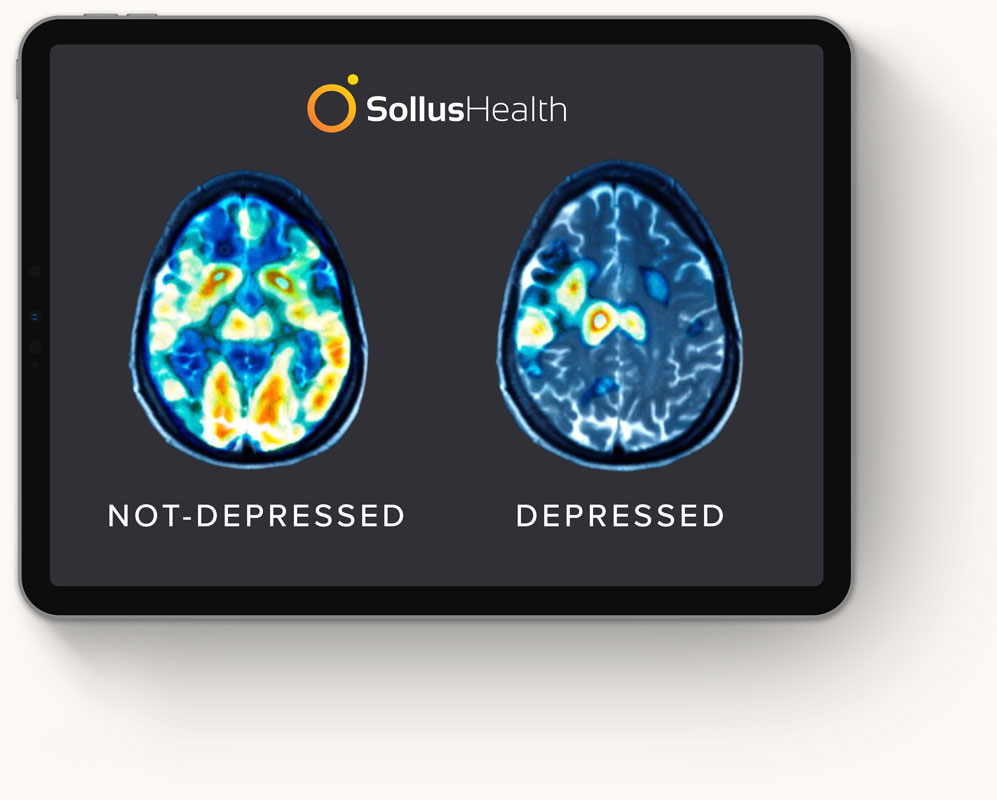
PET Scan showing the brain activity of a patient with depression vs. a patient without depression
NEUROPLASTICITY
Brain Activity is Increased with TMS Therapy
When a patient experiences depression, brain cell activity decreases. High-frequency pulses can stimulate this activity, leading to an improvement in depressive symptoms. Brain scans reveal an increase in connections between brain cells after TMS therapy, a process known as neuroplasticity—the brain's ability to repair and form new connections.

SOLLUS HEALTH ADVANTAGE
Next Generation TMS Therapy in San Diego for Superior Results
Sollus Health leverages next-generation TMS technology to deliver the most advanced and effective stimulation solutions in the industry in San Diego.

Depression is temporary, Hope is permanent
COMPASSION. HOPE. ACTION
Conditions We Treat in San Diego
Sollus Health offers effective, non-invasive treatment for conditions like depression, OCD, PTSD, and anxiety in San Diego.
COMMITTED TO EXCELLENCE
Sollus Psychiatry
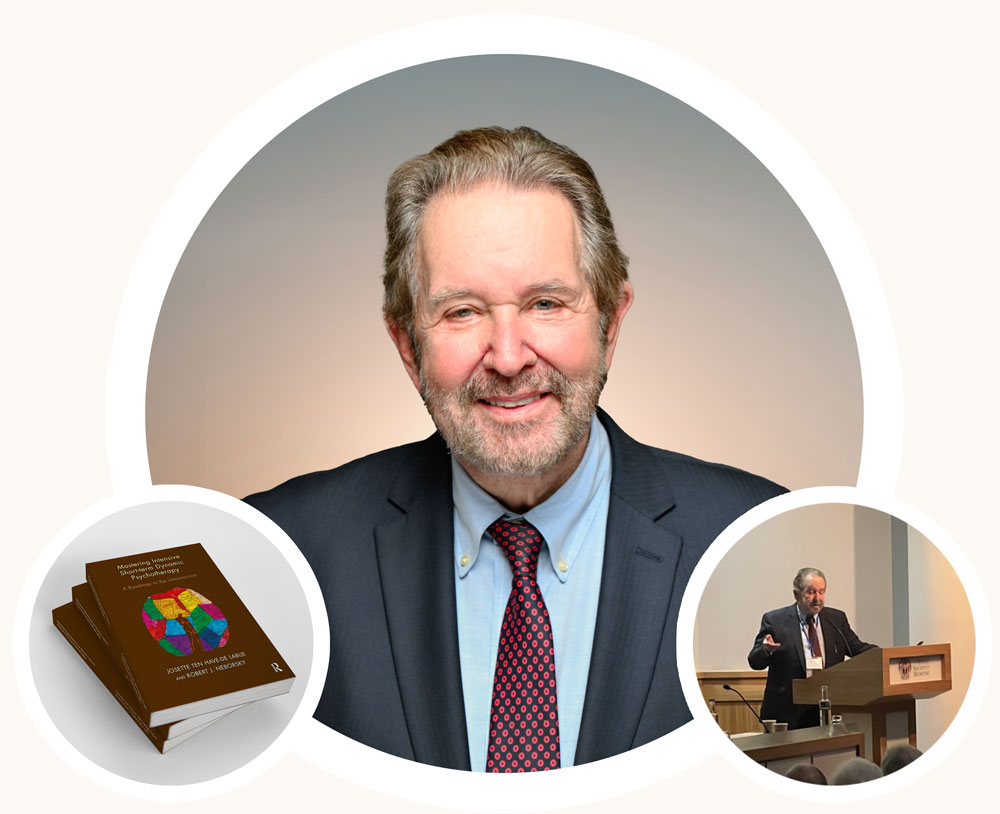

PRESIDENT & CEO
Robert Neborsky, MD
Robert J. Neborsky, M.D. has been in private practice in California since 1981. His appointments include:
-
President of The Southern California Society for ISTDP
-
Voluntary Clinical Professor of Psychiatry, UCSD School of Medicine and UCLA School of Medicine (Honorary)
-
Distinguished Life Fellow of the American Psychiatric Association
-
Diplomate, American Board of Psychiatry and Neurology
Author
-
Numerous publications in the field of Psychiatry, Psychopharmacology and Psychotherapy
-
Short Term Therapy for Long-Term Change (Norton)
-
Healing Trauma: Attachment, Mind, Body, and Brain (Norton)
Life Changing TMS Experience
YOUR QUESTIONS ANSWERED
FAQs About TMS Therapy

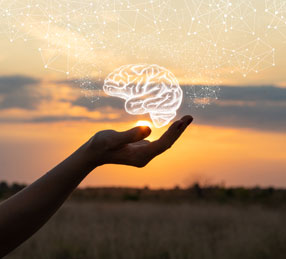

Can't find what you're looking for? Get in touch with our team and we will gladly help out.
Transcranial Magnetic Stimulation (TMS) is a non-invasive procedure used to stimulate nerve cells in the brain using magnetic fields. It is primarily employed in the treatment of depression, particularly in cases where traditional treatments like medication or psychotherapy have been ineffective
Transcranial Magnetic Stimulation (TMS) works by using magnetic fields to stimulate specific regions of the brain involved in mood regulation, particularly the prefrontal cortex, which is often underactive in individuals with depression. The magnetic pulses generated during TMS induce electrical currents in the brain, which can modulate neuronal activity. This stimulation helps to "retrain" the brain's neural circuits, improving communication between different regions that regulate emotions and cognitive function. Over time, repeated stimulation can promote neuroplasticity, allowing the brain to reorganize itself and function more effectively. This increased neural activity is believed to alleviate symptoms of depression and other mental health conditions.
TMS has been shown to be highly effective, particularly for treating major depressive disorder (MDD), especially in patients who do not respond well to antidepressants or psychotherapy. Clinical studies suggest that around 80% of patients experience significant improvement in their depressive symptoms, and about 50% achieve full remission.
TMS therapy is generally well-tolerated and considered a comfortable procedure for most patients. During the session, an electromagnetic coil is placed on the scalp, and patients feel a tapping sensation or mild knocking on the head as the magnetic pulses are delivered. Some people may also experience slight discomfort or tingling at the treatment site, particularly in the first few sessions, but this usually lessens over time. There may be an audible clicking sound as the machine operates, and patients often wear earplugs to reduce any noise-related discomfort.
TMS is generally well-tolerated, with most side effects being mild and temporary. The most common side effect is discomfort or mild pain at the treatment site, particularly during the first few sessions, which usually decreases as the scalp becomes accustomed to the stimulation.
A typical course of TMS therapy lasts about 4 to 6 weeks, with patients receiving treatment five days a week. Each session generally lasts between 20 to 40 minutes, depending on the specific protocol being used and the individual's condition
TAKE THE FIRST STEP TODAY
A Simple Process to Begin Your TMS Journey
Take the first step toward lasting relief from depression with TMS therapy, a non-invasive, medication-free treatment designed to restore your well-being.
Break free from depression
Our team is here to guide you through a personalized journey to reclaim your mental health and regain control of your life.

BREAKTHROUGH TECHNOLOGY
Latest News and TMS Innovation
Discover the latest breakthroughs in TMS technology. Our innovative advancements enhance precision and effectiveness, bringing hope to more patients in San Diego.
